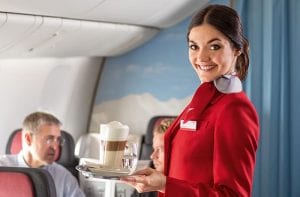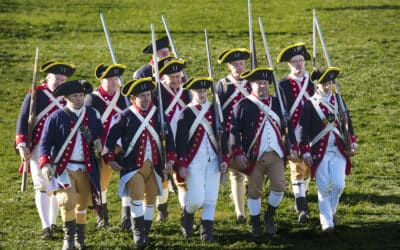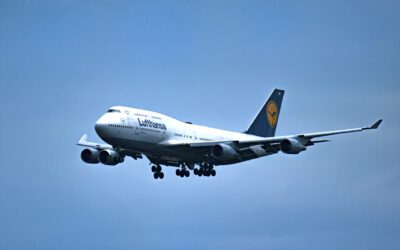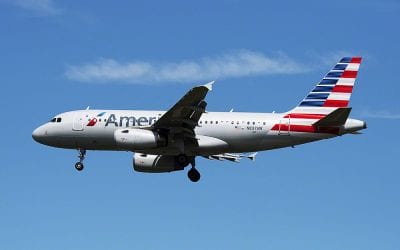The time is overdue for the airlines to be held responsible for not following FAA regulations by not denying visibly drunk passengers from boarding and serving visibly drunk passengers inflight.
 Last July, a parent of a 16-year-old daughter filed a federal lawsuit against Delta Air Lines, accusing the flight attendants of failing to intervene against a male passenger who they say was served at least ten alcoholic beverages on board their flight and then groped their teenage daughter and her mother. The flight was from New York City to Athens, Greece. According to the suit, filed in the Eastern District of New York, the male passenger appeared visibly intoxicated, slurring his speech and continually attempting to get the teenager’s attention.
Last July, a parent of a 16-year-old daughter filed a federal lawsuit against Delta Air Lines, accusing the flight attendants of failing to intervene against a male passenger who they say was served at least ten alcoholic beverages on board their flight and then groped their teenage daughter and her mother. The flight was from New York City to Athens, Greece. According to the suit, filed in the Eastern District of New York, the male passenger appeared visibly intoxicated, slurring his speech and continually attempting to get the teenager’s attention.
In January, a 55-year-old male passenger aboard All Nippon Airways flight NH118 was reportedly “heavily drunk” when he bit a female crew member on the arm on a flight from Tokyo to Seattle. The airliner had to turn around while over the Pacific Ocean. He was arrested when the plane landed back at Tokyo.
Too often visibly drunk passengers abuse and/or assault other passengers and flight crew.
In March, two passengers on United Airlines flight UA883 from London Heathrow Airport to Newark Liberty International Airport were reportedly so drunk that they exhibited “life-threatening” behavior, as reported the flight crew when they triggered a “Level 3” warning and diverted the flight to Bangor International Airport. The two passengers were arrested at the airport.
From my personal experience on multiple airlines over the years, including recently, I believe these reports are accurate. Too often I’ve had to sit near badly behaving, obviously drunk passengers that either came on the plane already drunk and continued to be served by the flight crew or were continuously served by the flight crew until and after they became visibly drunk and abusive.
Gate agents and flight crew must be held accountable for not denying boarding of visibly drunk passengers and continuing to serve them despite their condition.
While it’s about time that this kind of behavior on the part of passengers has to stop, even more so, it’s time that the airlines, their gate agents and their flight crews are held accountable for their part in these incidents. Too often, they result in inappropriate and unlawful behavior that periodically results in abuse and assault of flight crew and worse, powerless passengers.
On a flight that I took a while back on United Airlines from Los Angeles to Kona, Hawaii, the male flight attendant handling our cabin served everyone all the liquor they wanted, including the two women sitting directly in front of my wife and me. Within an hour or so the women became very drunk, loud and abusive to everyone in the cabin near them. The flight was horrible because of their behavior. While deplaning and making their way to the terminal, one of the women had to be held up as she staggered to the terminal.
There is no excuse for flight crews taking the easy way out and serving visibly intoxicated passengers, even after they exhibit abusive behavior.
There was no excuse for the flight attendant’s poor judgment which led to the women’s drunken state and abusive behavior. While it’s always the drunk’s fault for their behavior, it’s also their bar tender’s or server’s responsibility for their condition.
In each of the above cases, gate agents and flight crews had the power to deny boarding to any passenger who was already visibly intoxicated and certainly the flight crews had the power to not serve alcoholic beverages to anyone already drunk and cut off passengers from having more alcohol once they became visibly drunk or better yet, before that occurred, to prevent them from becoming abusive or worse.
FAA regulations require that the airlines deny boarding of visibly drunk passengers and not serve them alcohol on board their planes.
In fact, the airlines are required to do that, according to U.S. Federal Regulation of the Federal Aviation Administration (FAA), Department of Transportation 14 CFR § 121.575 – Alcoholic beverages,
“(c) No certificate holder (read that as no airline) may allow any person to board any of its aircraft if that person appears to be intoxicated.“
and
“(b) No certificate holder (read that as no airline) may serve any alcoholic beverage to any person aboard any of its aircraft who — (1) Appears to be intoxicated;”
When flight attendants do their job and remove boarded drunk passengers at the airport and don’t serve visibly drunk passengers inflight everyone on board is better for it.
Flight attendants have shared with me over the years that it’s rare that they can’t spot a drunk passenger by their behavior and other characteristics. Many are proactive during boarding and have removed drunk passengers before the plane’s doors are closed. Most won’t serve an intoxicated passenger inflight and many even offer them coffee or soda in an attempt to sober them up.
When flight attendants take that approach, it helps everyone on board.
The problem is that there are still too many flight attendants who take the easy way out with difficult passengers who feel needy and can’t seem to get along without a drink in their hands while aloft. By not proactively dealing with intoxicated passengers, major problems can and too often do occur. Totally preventable incidents like those I’ve disclosed above are serious, often costly and never necessary.
Visibly drunk passengers are unable to take care of themselves during a mishap or accident.
Moreover, had those flights incurred a serious mishap or accident, can you imagine what would have become of those drunken passengers? They weren’t in control of their faculties. One of the women on my flight could barely stand. How could they have evacuated safely? Is it possible that in attempting to evacuate that they would have held back others who might then have been seriously injured or worse?
If anything, from my personal observations while aloft, the problem of inebriated passengers is worse than ever. The potential for harm due to intoxicated passengers and the flight crew who enables them is thereby also worse than ever.
The time has long since passed when the airlines, the FAA and the U.S. Congress should have done whatever is required to prevent drunkenness among passengers on planes flying over, taking off or landing in the U.S.
The FAA needs to hold the airlines accountable for enforcing alcoholic beverage regulations. If that takes significant fines that the airlines will work to avoid, that should be done.
The FAA needs to hold the airlines accountable for enforcing the requirements of 14 CFR § 121.575 – Alcoholic beverages. That may take creating a significant new fine schedule, but what’s required now is clearly not having the necessary effect on making the airlines act responsibly.
My proposal is simple and enforceable. For any airline that doesn’t deny boarding to a visibly intoxicated passenger or serves a visibly intoxicated passenger, the FAA will levy a fine of not less than $1,000,000 nor more than $10,000,000 per intoxicated passenger per incident. The FAA will be required to investigate all incidents reported by flight crews and/or passengers to determine the validity of the incident and the level of the fine. If those fines are too low, then the FAA should raise their limits until the airlines comply with the law.
In addition, the U.S. Congress must hold the FAA accountable to write the necessary regulations and enforce them so that we can finally fly, in and over the U.S., free of fear of drunks abusing and assaulting us, our families, including our children, and our friends.
I call on Congress, the President, the FAA and the airlines to finally act responsibly to rid the skies across the U.S. from the scourge of publicly drunk passengers who abuse, assault and endanger.
After many years working in corporate America as a chemical engineer, executive and eventually CFO of a multinational manufacturer, Ned founded a tech consulting company and later restarted NSL Photography, his photography business. Before entering the corporate world, Ned worked as a Public Health Engineer for the Philadelphia Department of Public Health. As a well known corporate, travel and wildlife photographer, Ned travels the world writing about travel and photography, as well as running photography workshops, seminars and photowalks. Visit Ned’s Photography Blog and Galleries.



